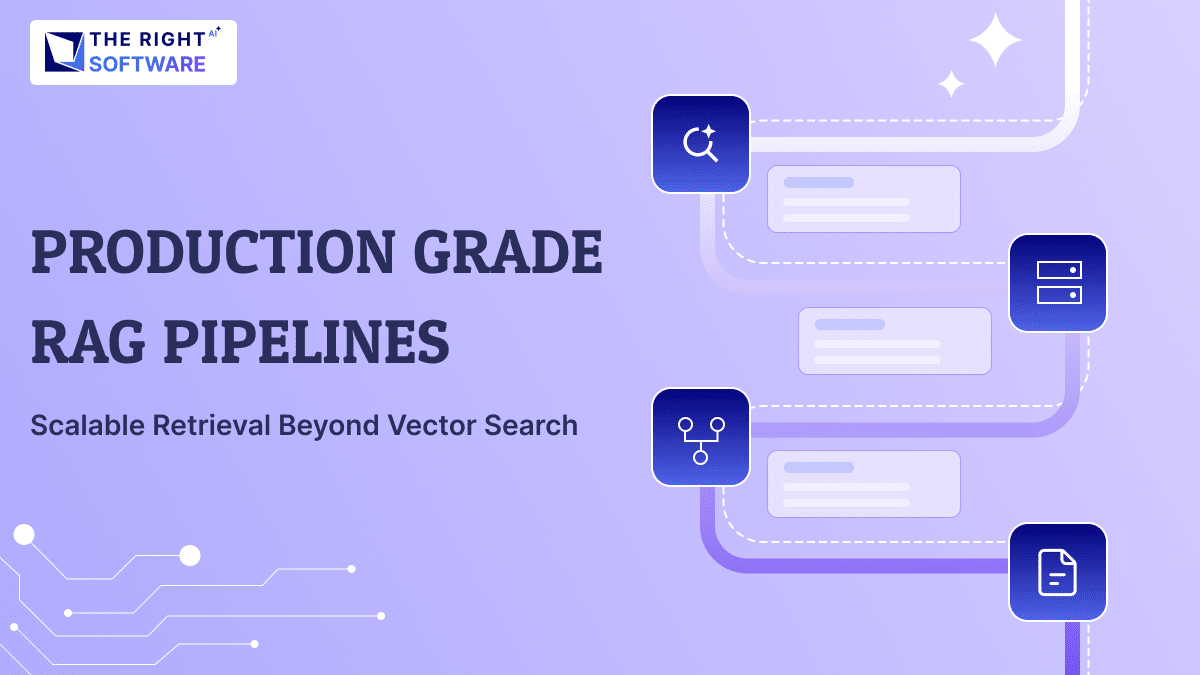In the ever-evolving world of eCommerce, selecting the right platform is crucial for the success of your online store. Two of the most popular choices are Magento and WooCommerce. Each platform has its own strengths and weaknesses, making it essential to evaluate them based on your business needs. In this blog, we’ll compare Magento and WooCommerce across various factors to help you make an informed decision.
Overview of Magento and WooCommerce
Magento and WooCommerce are among the leading self-hosted eCommerce platforms, each boasting unique advantages and certain limitations. Before diving into the details, let’s briefly explore both platforms.
An Introduction to Magento
Magento is a Content Management System (CMS) specifically designed for eCommerce. Acquired by Adobe in 2018, it is often referred to as Adobe Commerce. While Magento offers a robust solution for large-scale eCommerce projects, it is more complex and primarily geared towards developers, making it less beginner-friendly.
There are two main versions of Magento: Magento Open Source (also known as Magento Community) and Magento Commerce (or Magento Enterprise). This article will primarily focus on Magento Open Source in comparison to WooCommerce.
Key Features of Magento
- Unlimited Product Support: Handle an extensive range of products without limitations.
- Extensive Free Extensions: Access hundreds of free extensions to enhance functionality.
- API Integrations: Seamlessly connect with various third-party applications.
- Flexible Theming and Layout System: Customize your store’s design to match your brand identity.
While Magento is flexible and intuitive, it may pose a learning curve for beginners, making it better suited for development professionals.
An Introduction to WooCommerce
WooCommerce is a powerful eCommerce plugin for WordPress, enabling users to turn their existing websites into fully functional online stores. Launched in 2011, it has rapidly become one of the most popular eCommerce solutions, thanks to its user-friendly interface and extensive customization options. Ideal for both beginners and experienced developers, WooCommerce allows businesses of all sizes to create a seamless shopping experience.
WooCommerce operates as an open-source platform, offering a range of features that cater to various business needs. It seamlessly integrates with WordPress, making it an excellent choice for those already familiar with the platform.
Key Features of WooCommerce
- Easy Setup and Management: User-friendly interface for quick installation and configuration.
- Extensive Customization Options: Choose from numerous themes and plugins to enhance your store’s functionality.
- Built-in Payment Processing: Supports multiple payment gateways for easy transactions.
- Inventory Management: Efficiently manage stock levels, shipping options, and product variations.
- SEO Friendly: Optimized for search engines to improve visibility and ranking.
While WooCommerce is versatile and accessible, it is especially suitable for those looking to build an online store without extensive technical knowledge.
Magento vs WooCommerce
Now that we’ve introduced each platform, it’s time to dig a little deeper. Below, we’ll take a closer look at Magento vs WooCommerce and see how they compare on crucial aspects.
1. Ease of Use
Magento
- Learning Curve: Magento has a steeper learning curve due to its complexity and extensive features. It may require some technical knowledge to set up and manage.
- User Interface: The backend interface can be overwhelming for beginners, but it offers powerful tools for managing large inventories and multiple stores.
WooCommerce
- User-Friendly: WooCommerce is much easier to use, especially for those familiar with WordPress. The setup process is straightforward, making it accessible for beginners.
- Customization: WooCommerce provides an intuitive interface for managing products, orders, and settings, allowing users to customize their store without extensive coding knowledge.
2. Features and Functionality
Magento
- Advanced Features: Magento boasts a wide range of advanced features, including multi-store support, complex product types, and powerful SEO capabilities.
- Customization: With Magento, you can create highly customized and scalable stores. The platform supports custom themes and extensions, enabling you to tailor the site to your needs.
- Performance: Magento is built for performance and can handle high traffic and large catalogs, making it ideal for enterprise-level businesses.
WooCommerce
- Basic Features: While WooCommerce offers essential eCommerce features, such as product listings, payment gateways, and shipping options, it may lack some advanced functionalities without additional plugins.
- Extensions: WooCommerce has a vast library of extensions to enhance functionality, including payment gateways, shipping methods, and marketing tools.
- Customization: It’s easy to customize your store with themes and plugins, making it flexible for various business models.
Discover about: WooCommerce Customization Techniques
3. Payment Gateways
Magento
Magento provides a wide range of payment gateway integrations, catering to various business needs:
a. Built-in Payment Methods
- Magento Payments: Magento offers native support for payment methods like PayPal, Authorize.Net, and Braintree, which can be easily integrated without additional costs.
- Check/Money Order: Magento allows merchants to accept offline payments through checks or money orders.
b. Third-party Payment Gateways
- Stripe: Offers a seamless checkout experience and supports various payment methods, including credit cards and digital wallets.
- Square: Ideal for businesses that have both online and physical stores, allowing for unified payment processing.
- Adyen: A global payment company that supports multiple currencies and payment methods, perfect for international businesses.
c. Key Features
- Multi-Currency Support: Magento supports transactions in multiple currencies, making it suitable for international businesses.
- Fraud Detection Tools: Many payment gateways come with built-in fraud detection features to protect both merchants and customers.
- Recurring Payments: For subscription-based businesses, payment gateways like Stripe and PayPal offer recurring payment options.
WooCommerce
WooCommerce, being a plugin for WordPress, also provides extensive payment gateway options:
a. Built-in Payment Methods
- WooCommerce Payments: A built-in solution that allows merchants to manage payments directly from their WooCommerce dashboard. Supports major credit cards.
- PayPal: Easily integrates with WooCommerce, enabling customers to pay via PayPal accounts or credit/debit cards.
b. Third-party Payment Gateways
- Stripe: Offers a user-friendly interface and supports a variety of payment methods, including Apple Pay and Google Pay.
- Square: Ideal for businesses with physical locations, enabling integrated online and offline payments.
- Amazon Pay: Allows customers to use their Amazon account to make purchases, providing a familiar checkout experience.
c. Key Features
- Customizable Checkout Experience: WooCommerce allows for a customizable checkout process to enhance user experience.
- Extensive Plugin Library: There are numerous plugins available to extend payment functionalities, such as accepting cryptocurrencies or integrating additional payment providers.
- Security Features: WooCommerce payments are PCI compliant, ensuring that customer data is securely handled.
Discover about: How to disable/hide all payment gateways in WooCommerce
4. Scalability
Magento
- High Scalability: Magento is built to scale. As your business grows, you can easily add more products and features without sacrificing performance.
- Multi-Store Management: Magento allows you to manage multiple stores from a single backend, making it suitable for businesses with diverse product lines.
WooCommerce
- Limited Scalability: While WooCommerce can handle a reasonable amount of traffic and products, it may struggle with performance as your store grows unless optimized.
- Hosting Dependency: Scalability is heavily dependent on your WordPress hosting provider. Choosing a high-performance hosting solution is essential for larger stores.
5. SEO and Marketing
Magento
- SEO Features: Magento offers advanced SEO features, including customizable URLs, meta tags, and sitemap generation. It provides comprehensive tools for optimizing your store for search engines.
- Marketing Tools: Magento has built-in marketing tools, including promotions, coupons, and email marketing integrations.
WooCommerce
- SEO-Friendly: WooCommerce inherits WordPress’s strong SEO capabilities, allowing users to easily optimize their products and content for search engines.
- Plugins: Numerous SEO plugins, like Yoast SEO, can enhance your WooCommerce store’s search engine visibility.
Discover about: WooCommerce SEO Strategies
6. Cost
Magento
- Initial Costs: Magento Open Source is free, but costs can accumulate quickly with hosting, development, and extensions. Magento Commerce comes with a licensing fee that varies based on your business needs.
- Development Costs: Hiring a developer is often necessary to set up and maintain a Magento store, adding to the overall cost.
WooCommerce
- Low Initial Costs: WooCommerce is free, and you can start with minimal costs. However, premium themes and plugins can add to your expenses.
- Hosting Costs: You’ll need a WordPress hosting provider, which can vary in cost depending on the level of service you choose.
7. Support and Community
Magento
- Support: Magento offers professional support for its Commerce version. Community support is available for Open Source users, but it may take time to find solutions to complex issues.
- Community: Magento has a large community of developers and users, providing resources, forums, and extensions.
WooCommerce
- Support: WooCommerce offers extensive documentation, tutorials, and community forums. Paid support is also available for premium extensions.
- Community: The WooCommerce community is vibrant and active, with numerous resources and user groups available for assistance.
Magento vs WooCommerce: A Quick Comparison Recap
| Magento | WooCommerce | |
|---|---|---|
| Ease of Use | Steeper learning curve; more suited for developers | User-friendly interface, especially for WordPress users |
| Features and Functionalities | Advanced features; built for large stores | Basic features with extensive plugin support |
| Payment Gateways | Supports native and third-party gateways like Stripe, PayPal, and Braintree | Supports a wide range of built-in and third-party gateways like WooCommerce Payments, Stripe, and PayPal |
| Scalability | Highly scalable for large stores and multi-store management | Limited scalability, dependent on hosting quality |
| SEO and Marketing | Advanced SEO features and built-in marketing tools | Inherits WordPress’s SEO strengths; additional SEO plugins available |
| Cost | Free Magento Open Source, but higher costs for hosting, development, and extensions | Free WooCommerce plugin, but hosting and premium themes/plugins add costs |
| Support and Community | Professional support for Magento Commerce; strong developer community for Open Source | Extensive community support, paid support for premium extensions available |
Conclusion: Which One Should You Choose?
The choice between Magento and WooCommerce ultimately depends on your business requirements:
Choose Magento if:
- You run a large or rapidly growing eCommerce business.
- You need advanced features, customization, and scalability.
- You have the budget for professional development and ongoing support.
Choose WooCommerce if:
- You are a small to medium-sized business looking for an easy-to-use platform.
- You want to leverage the power of WordPress and its extensive ecosystem.
- You prefer a low-cost solution with flexible customization options.
Both Magento and WooCommerce are excellent eCommerce platforms, each with its unique advantages. Evaluate your business needs, technical expertise, and budget to make the best decision for your online store.
Contact The Right Softwate
At The Right Sofware, we specialize in providing top-notch WooCommerce and Magento solutions tailored to your business needs. Whether you’re looking to enhance your online store with custom functionalities or need expert guidance on plugin development, our team is here to help. Contact us for hiring expert magento or WooCommerce Developers.





